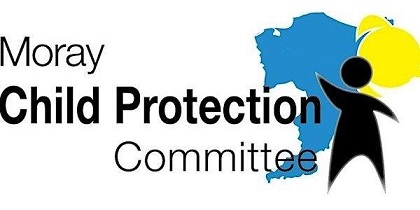Frequently Asked Questions: Child Protection

Please use expandable boxes for each question. The questions and answers are below.
Children can be abused in different ways. They can be physically injured, for example by punching, hitting or kicking. They can also be abused sexually, which means that they have experienced inappropriate sexual behaviour or language. Emotional abuse, where a child is constantly criticised, ignored or humiliated, also causes harm. Neglect is another form of abuse, where a child is not properly fed, clothed or sheltered or kept clean or safe.
Children who are being abused or neglected may choose to speak to an adult but this is not always the case. If there are signs which may make you worry that a child has been abused, then you should report your concerns. The child may have unexplained bruising, or bruising in an unusual place, seem afraid, quiet or withdrawn, be afraid to go home, or seem hungry, tired or unkempt. You may be concerned if a child is left alone or unsupervised, has too much responsibility for their age, is acting in a sexually inappropriate way or is misusing drugs or alcohol. You may also see behaviour in an adult which makes you worry about any children they care for. For example, an adult may be acting violently or sexually towards a child or someone else, misusing drugs or alcohol while caring for a child or be verbally abusive towards a child.
If you have concerns about a child you can contact: Children and Families Access Team: Monday to Friday from 9 am until 5 pm on 01343 554370. The Duty Officer will be available to discuss concerns about the care and protection of any child in the local community. You can also email the Access Team on childrenbsaccessteam@moray.gov.uk with non-urgent concerns. Out of Hours Service: Out with these hours enquiries are dealt with by the Out of Hours Service who can be contacted on 03457 56 56 56. Police: you can call 101 to discuss a concern or you can call 999 in an emergency
All children have the right to be kept safe from harm. If you are worried about something or don't feel safe, and not sure what to do, there are lots of people who can help. You could speak to: - a health visitor, - school nurse, - teacher, - nursery worker, - family doctor, - social worker, - police officer, - children's reporter - or any adult you feel you can trust. Contact details for the Children & Family Access Team, the police and children’s reporter are available on these sites. If you prefer, you can call Childline free on 0800 1111 at any time, to talk about any problem.
You could speak to a health visitor, teacher, nursery worker, your family doctor or a member of the Children & Family Access Team. All of these people can help you to find the support you need to take care of your child. Please contact the Children & Family Access Team Monday to Friday from 9 am until 5 pm. The Duty Officer will be available to discuss your concerns. Out with these hours enquiries are dealt with by the Out of Hours Service. They can be contacted on 03457 56 56 56. You could call Parentline Scotland a free telephone helpline for anyone caring for children in Scotland, on 08000 28 22 33.
An IRD is a process of information sharing and decision making undertaken by professionals where a concern about abuse or neglect of a child, young person or unborn baby has been raised. This often takes the form of a meeting. An IRD may reach the conclusion that there is no risk of harm and that no further action need be taken. It may recommend that another type of multiagency process is started or continues (Child Planning). Where serious concerns are apparent, an IRD can ask that a Child Protection Planning Meeting is convened to explore risk and strength associated with your family and to formulate a plan of support. Investigative actions following an IRD can include a Joint Investigative Interview or medical examination. Whilst you will not be invited to attend an IRD, your voice will feature in the meeting and you will be informed of the outcomes of the meeting.
A Child Protection Planning Meeting is a meeting to which you and your child will be invited and involved. A Child Protection Planning Meeting is held where there is concern that your child may be at risk of significant harm. The aim of this meeting to to formulate a plan to help support you and your family to reduce the risk of harm happening. Our Child Protection Planning Meetings are solution Oriented; that means we will explore what is concerns us but also the strengths in your family before we work of the plan of support.
Every local authority in Scotland has a child protection register. It is a list of children who have been identified as being at risk or harm or further harm. Our register, which is kept electronically, covers all these children in the areas of Aberdeen, Aberdeenshire and Moray. What is the purpose of the Child Protection Register? The names of children, young people and unborn babies and placed on the child protection register to help professionals workers understand your situation and make sure that your family are safe. Each child on the child protection register has a plan of support known as a Child Protection Plan which is built with you at a Child Protection Planning Meeting. Who can get information from the child protection register? Information from the register is only given to those people who need to know because they are working to help the family. This includes social workers, your doctor, school nurse, police or teachers.
Contact Us
(Not for reporting child protection concerns)
Moray Child Protection Committee
The Moray Council, Education and Social Care,
High Street, Elgin
IV30 1BX
01343 543451
